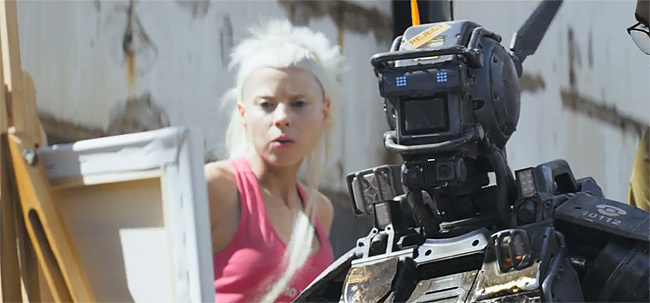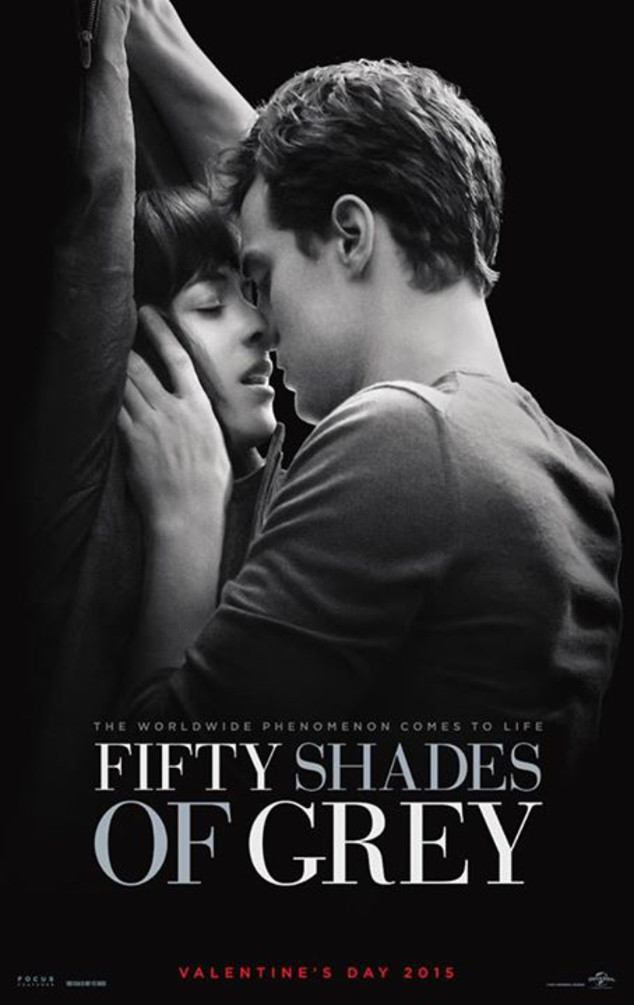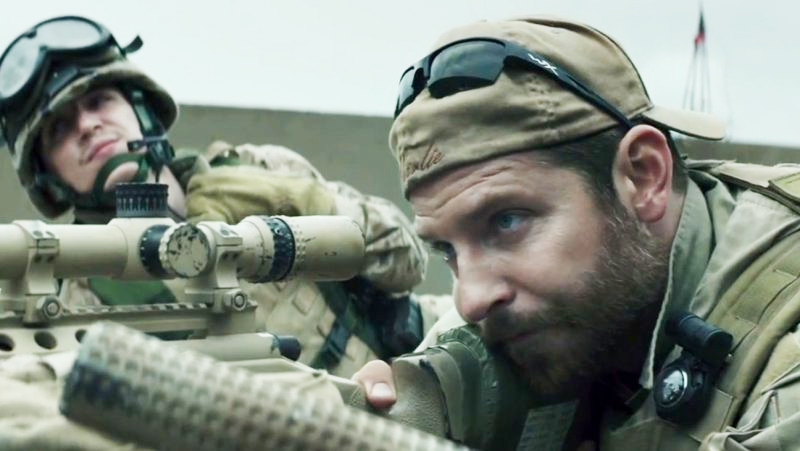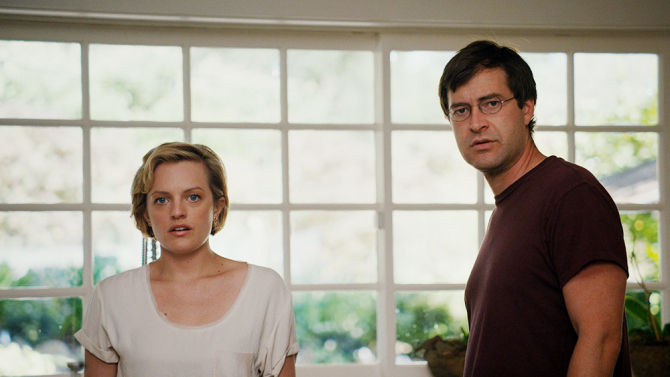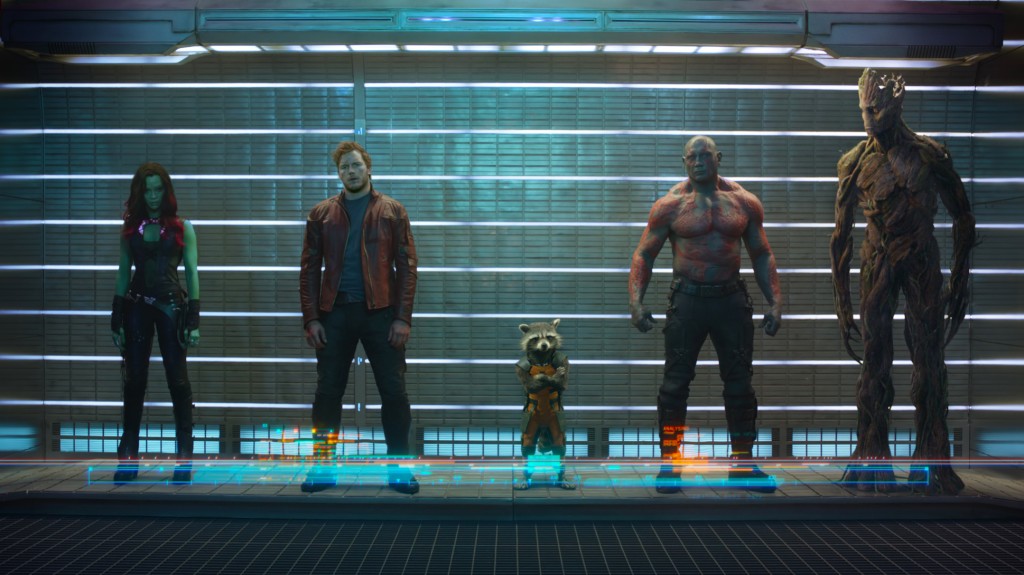Some thoughts on Chappie
I took my son, 13, to see Chappie last night. I warned him that the reviews have not been good. I wanted to see it because I love the way director Neill Blomkamp thinks about images; there were moments in District 9 where I had to remember to blink. Based on the promotional materials, what I was expecting was a kind of heartwarming sci-fi fable about a robot with an innocent soul who teaches the world something about what it means to be human, a sort of slightly-more-adult version of Short Circuit. I’m also a fan of Die Antwoord, the bizarre rap duo who have supporting roles in the movie, and wanted to see if they were as interesting as actors as they are musical performers. The reviews had made it clear that Blomkamp had slighted his attention to story at the expense of something, and that the fable-like qualities of the narrative didn’t sit well next to the science-fiction and action qualities.
Well, the movie pretty much took the top of my son’s head off. I don’t think I’ve ever seen him more excited about a movie before. He couldn’t sit still afterward. He started using references to “termite art” and the limits of narrative and wanted to know all about Die Antwoord and life in Johannesburg. It was one of the most exciting moviegoing experiences of my life as a father.
Some thoughts on Fifty Shades of Grey
Another weekend, another smash-hit movie that various guardians of culture have decided that no one should like because it’s “bad” — that is, wrong.
Last Tuesday, the reviews for Fifty Shades of Grey were at 76% “Fresh” at Rotten Tomatoes. It’s now Sunday and that percentage has dropped an astonishing 50 percentage points. What happened between Tuesday and Sunday? I have no idea, besides “more critics saw the movie,” but I get the feeling that the early reviews saw the movie for what it is, and the later ones felt a need to conform to a critical “consensus.” The consensus, in this case, is that a movie like Fifty Shades of Grey is “bad for us.” Most of the bad reviews I’ve read tell me nothing about the movie and everything about the reviewer. They worry that the movie is bad for women, bad for romance, bad for sex. They say that the movie doesn’t represent sex as they understand it, doesn’t represent their ideal of love, doesn’t represent their high-minded notions of what culture should represent. They sniff in disdain about the gutter origins of the project (it began as Twilight fan fiction), as though that had anything to do with its quality as a movie.
American Sniper update
American Sniper dropped 27% in its fifth weekend for a gross of $64 million. For the sake of comparison, Selma dropped 37% and Into the Woods dropped 42%, also in their fifth weekends. (Birdman and The Theory of Everything got “Oscar bumps” and rose 24% and 33%, respectively.) American Sniper‘s gross is now $200 million, $60 million beyond Gran Torino, Eastwood’s previously highest-grossing movie.
What accounts for the success of American Sniper? The slender percentage drop indicates that some people are going to see it more than once, which astonishes me, because frankly it’s a tough sit. It’s brutal and tense and upsetting. And then there’s the plastic baby.
Some more thoughts on American Sniper
In the flash and tumult of American Sniper doing blockbuster business in the middle of January and becoming a big fake left/right political football, nobody has mentioned anything about the movie’s protagonist and the journey he goes on. The movie’s detractors are preoccupied with Chris Kyle’s real-life coarseness (racist, xenophobic, sociopathic, I’m told) and the movie’s supposed pro-war, pro-Bush, propagandistic agenda.
With Marvel movies being the new paradigm in Hollywood (for six years and counting), I’m surprised no one has yet mentioned the comic-book angle of the narrative.
Some thoughts on American Sniper
I saw American Sniper back in December at a WGA screening. I wasn’t expecting anything at all; I hadn’t enjoyed a Clint Eastwood movie for quite some time (and he’s one of my very favorite directors). I found the movie to be an unusually gripping, intense, brutal and morally complex character study. I also found it to be Clint Eastwood’s best movie, by a wide margin, since Unforgiven. I had no idea how it would do; Eastwood hasn’t had a hit in a while, so I assumed it would come and go.
Now it’s a huge success. More than a huge success, it’s a runaway smash phenomenon. It will make more in its first week than Eastwood’s second-highest-grossing movie, Gran Torino, made in its entire run. I don’t know how to account for that, I’m greatly surprised. (I kind of assumed Selma would own this particular weekend.) There’s nothing in any of AS’s elements (Iraq war, Eastwood, its star, its length) that would indicate it becoming a hit of this magnitude. This is a serious war drama doing Marvel numbers. (Oddly enough, there is a Punisher angle to the story, but I seriously doubt anyone went to the movie expecting a Frank Castle story.)
I’m not sure why, but my Facebook and Twitter feed keep telling me it’s an evil movie, racist and jingoistic war-mongering, that it’s Triumph of the Will for the US. I’m told that the movie glorifies its central character (which I guess it does, insofar as it’s a movie about him) at the expense of the truth (I’m told he was a racist and a sociopath who gloried at killing Iraqi “savages”). Well, that may be true. Movies do that. Even “true story” movies do that. Especially “true story” movies. Every bio-pic now in theaters, or ever in theaters, leaves things out, glosses over events, compresses time, creates conflicts that never existed, combines characters and, if it needs to, makes shit up for the sake of telling its story. The Imitation Game does it, The Theory of Everything does it. Unbroken does it. Foxcatcher does it. I’ll bet even Mr. Turner does it.
It’s true that the movie doesn’t have much to say about the cause of the Iraq war, or the blundering, stupid politics of the Bush administration, or the ongoing tragedy of the entire US involvement in the region. All that is absolutely true, and I yield to no man in my outrage against the US’s misadventures in Iraq.
But why would a comprehensive history of the war be the concern of drama? All the President’s Men doesn’t take time to show Watergate from Nixon’s point of view; that isn’t the story it has to tell. American Sniper tells the story of this one character and his experiences. If that story doesn’t appeal to you, and I can certainly see why it would not, don’t go to see it, problem solved. If you’re angry about American foreign policy, great! I am too, I just don’t see why it’s necessarily the job of a movie to dissect it.
My attention has also been directed to a handful of tweets that show that some audience members took the movie to be an invitation to kill Arabs. That’s depressing and lamentable, but I keep seeing the same five tweets posted over and over again. If something is a nationwide phenomenon and you can only find five idiotic tweets about it, you’re not looking very hard. I sense the hand of rival studios promoting the hatred of a few to get the edge on a movie they see as Oscar competition.
I’ve also been informed that Clint Eastwood is racist, which, sorry, doesn’t wash. The director of Invictus, Gran Torino, Flags of Our Fathers, Letters from Iwo Jima and Bird a racist? No. To be honest, I’m not entirely sure what Eastwood’s politics are. Sure, he gave that ridiculous speech at the RNC that time, but when I watch movies like The Outlaw Josey Wales or Bronco Billy I’m struck by the artist’s tolerance, inclusiveness and humanity.
some thoughts on The One I Love
It’s a fairly common occurrence for me that a young talent will come to me and ask me how to break into the biz. Since I’ve made several movies, make my living as a full-time writer and still don’t know “how to break into the biz,” I’m never sure what to say.
I do know this: it’s hard to get a movie made. The maze an idea has to go through from idea to multiplex is so long, so convoluted and so fraught with peril, that almost no ideas whatsoever make it all the way. The multiplex hit is a property designed from the top down, the corporation that owns the studio says “We need to see X amount of profit, or you’re out of business.” The studio then says “We need to take zero risks in our release schedule, we can only make huge movies that will play well internationally and will bring in lots of money through ancillaries for a long long time.”
So, if you’re a young talent and you’re expecting to “break into the biz,” the odds are stacked hugely against you. The studio is giving the jobs that matter to people who have already proven themselves to be talented filmmakers.
And so, the thing I say to the young talent who wants to break into the biz is: “Make your own work.” No one is going to give you a job writing or directing a movie; write and direct the movie yourself.
It’s never been easier. Cameras are dirt cheap, computer memory even cheaper, and your phone probably has an editing program more sophisticated than AVID. And the internet is right there, demanding to be fed content every day, 24 hours a day.
If you’d like an example of the perfect movie to make, go see The One I Love. It has one location, two actors, and a lovely corkscrew of an idea that means that the one-location, two-actor movie doesn’t feel like a play. It’s a movie, and it could only be a movie.
I’m glad that The One I Love has the production values it does, but whatever its budget was, it could have been lower. It could have been nothing. The script could have been shot with a consumer-level camera in a single apartment. The movie is in the idea. Because the idea is so strong, the script could have withstood almost any production values at all and would still have worked narratively and dramatically.
Point is, production values are nice and all, but the first thing you need is a great idea that gives rise to a great script. Stick to those things and you don’t need car chases, alien invasions, “great cinematography” or anything else, you’ll be on your way. And you don’t have to shoot it in a house, just about everyone has a unique location available to them. If you have a boat, write a movie that takes place on a boat. If you have an RV, make a movie that takes place in an RV. If you have an abandoned castle nearby, use that. The movie Killing Zoe got made because the producer had access to an abandoned bank that was about to be demolished, so he asked Roger Avery to write a movie that takes place in a bank.
Use what ever is around you, and use your lack of funds to your advantage. Start with an idea, write a movie that’s simple to shoot, and shoot it. Then you’ll have a movie people can see, and if you’ve done your job you won’t need to break into the biz, the biz will come looking for you.
some thoughts on Guardians of the Galaxy
When the previews for Guardians of the Galaxy started showing up in theaters, I was struck by the ways they used Blue Swede’s “Hooked on a Feeling.” That song was a nutty novelty hit when I was a wee lad in 1974, and I wondered if anyone else in the theater even remembered the recording, much less felt the sense of nostalgia I did when I heard it. Would people think that “Hooked on a Feeling” was some kind of message from another planet? What could its inclusion in the trailers for a Marvel movie possibly mean, except that, obviously, Guardians of the Galaxy was not a movie to be taken entirely seriously? And yet, that song, and the aesthetic choice that led to its inclusion in the movie, is a key part of understanding the appeal of not just Guardians but of the entire Marvel Cinematic Universe project.
Some thoughts on Lucy
Like a lot of things with me these days, the first thing you have to understand about my reaction to Lucy is that I’m old. I’m old enough to have worked at a movie theater in New York when Subway was released, and watched its delirious blend of kinetic cinema, outlandish violence and heartsick romance repeatedly. I’m old enough to have gone to see La Femme Nikita in a movie theater, many times, thrilling to the many ways it was a vast improvement over Subway. I’m old enough to have felt frustrated over the past two decades as director Luc Besson built his gigantic company in France, became a big-budget producer, made computer-animated movies for children and only occasionally made what I’ll call “Luc Besson movies,” that unique blend of kinetic cinema, outlandish violence and heartsick romance that I fell in love with so many years ago. If nothing else, Lucy is a stunning return to form for Besson, at once a thrilling summation and a brilliant leap forward.
A note on The World’s End
Please do go to see The World’s End. Apart from being very funny and genuinely thrilling in the Shaun of the Dead mode (it’s almost Invasion of the Shaun Snatchers), it features a downright incredible performance by Simon Pegg as the worn-down burnout Gary King, whose life came to its peak in 1990 and who has been unable to move on since. Gary King could have been – and occasionally is – presented as a cartoon character, but Pegg makes him electrically alive. His performance is complex, detailed, incisive, lacerating and ultimately heartbreaking. If you only know Pegg as Scotty in Star Trek or Benji in Mission: Impossible, or even from Shaun or Spaced, those performances barely scratch the surface of what he’s capable of doing.

